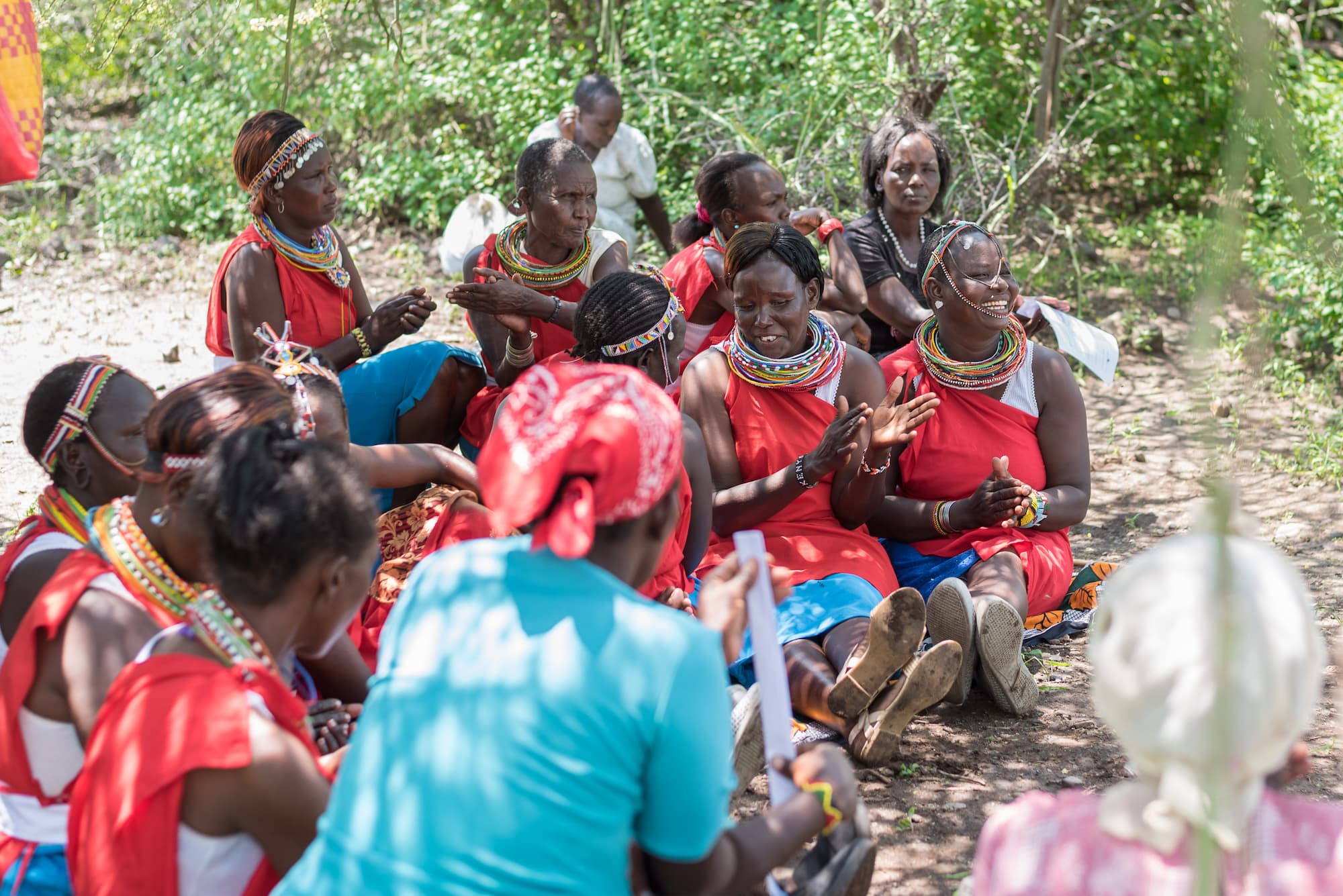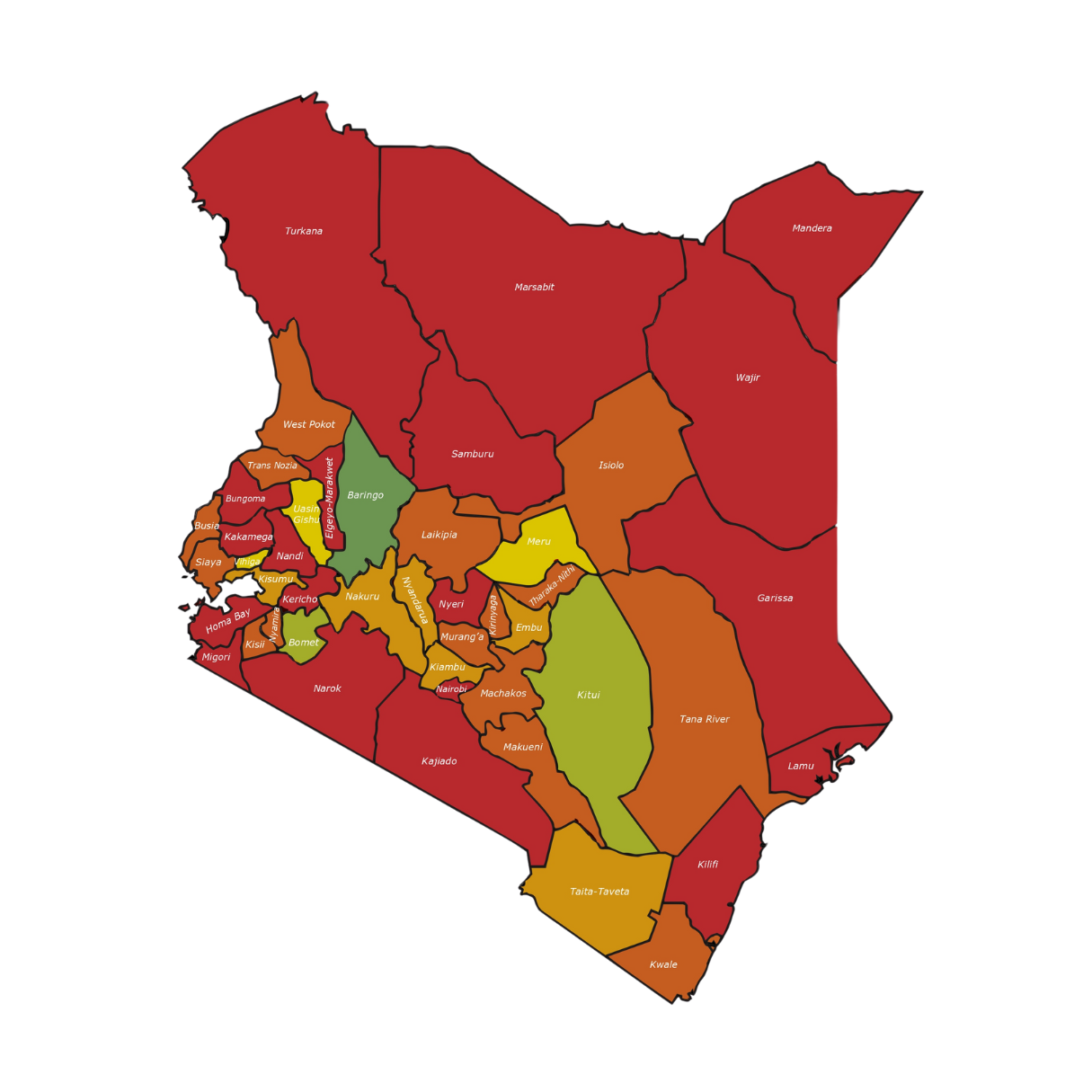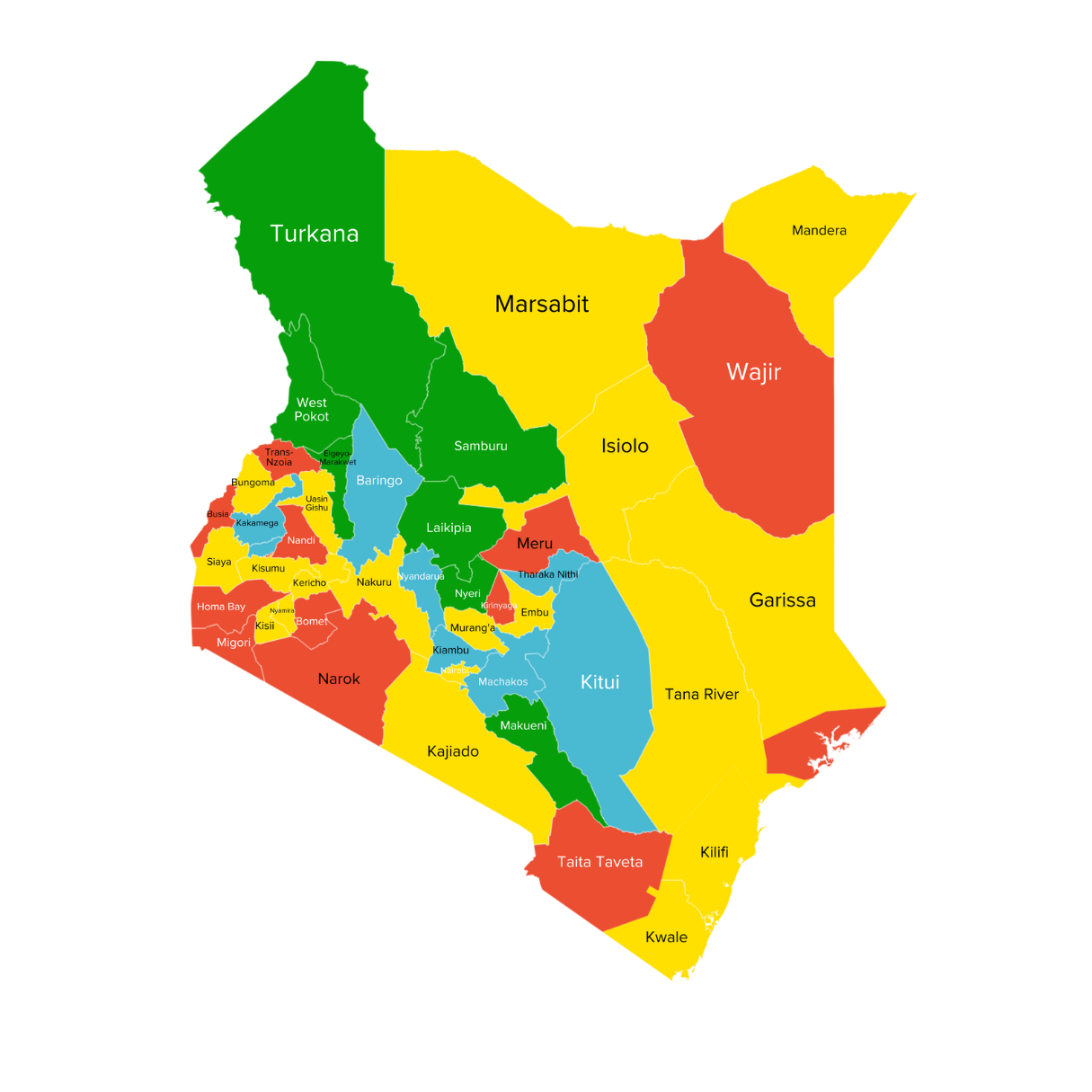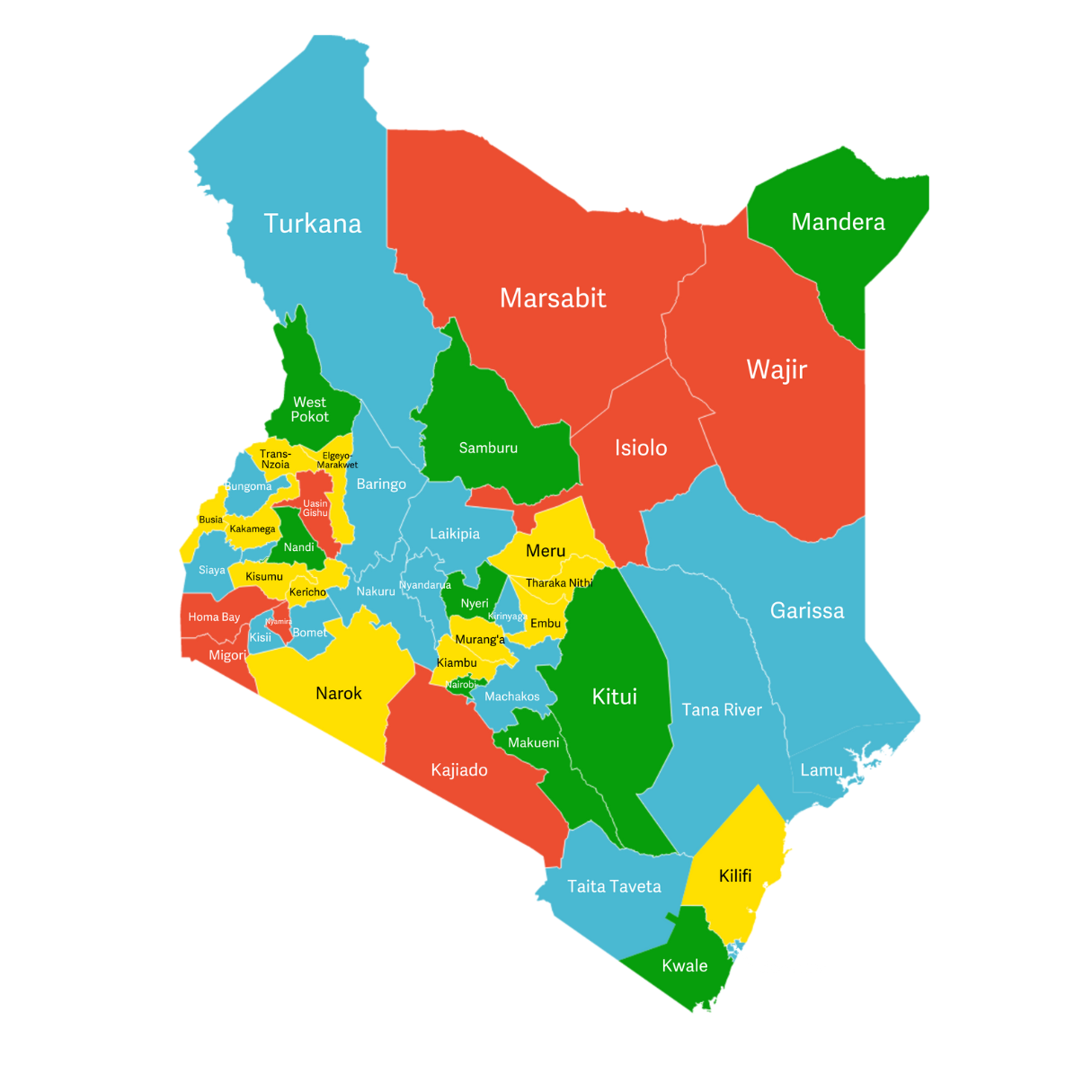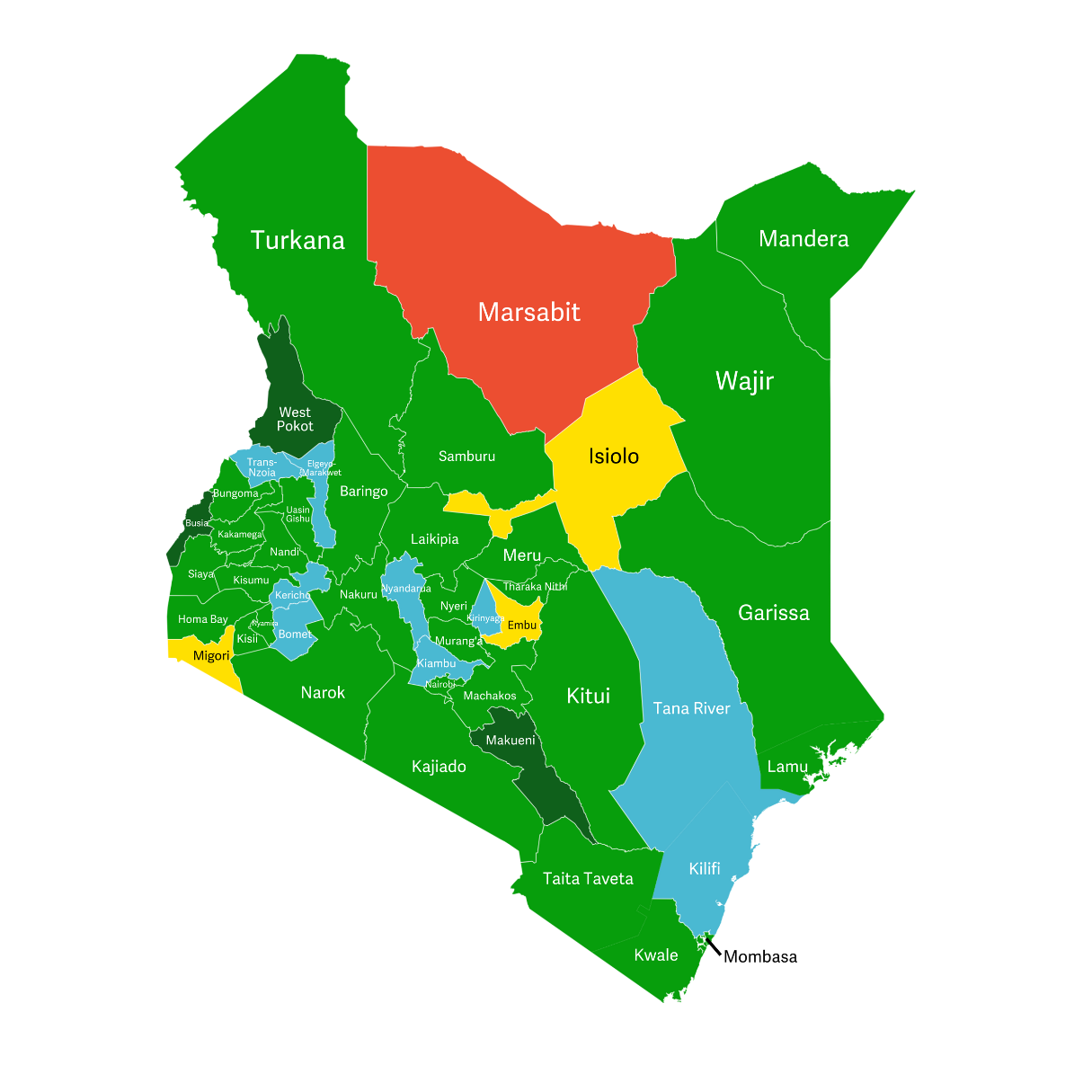
Kenya’s County Budget Transparency Survey
Exploring Sub-National Budget Transparency in Kenya
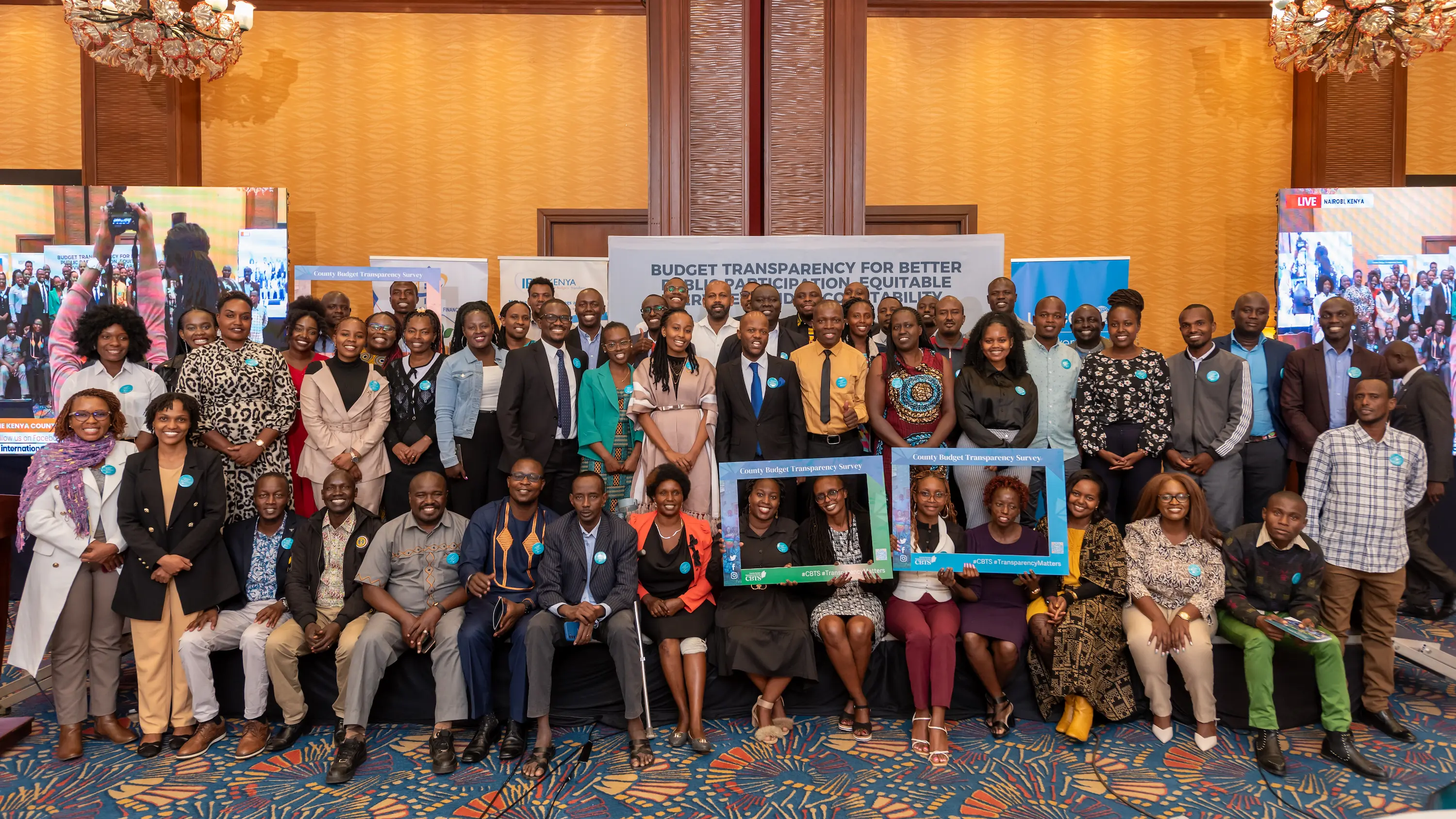

The County Budget Transparency Survey (CBTS) is one of the few consistent and comprehensive transparency initiatives conducted at the subnational level worldwide.
Through assessing the availability and comprehensiveness of key budget documents that counties are legally mandated to publish, decision-makers and citizens alike are able to assess and track how governments are availing information on the management of public finances at the sub-national level in Kenya.
Explore Budget Transparency in 2024
Click on your county to see how they performed in 2024.
Bajeti Hub’s Performance Scale
Counties
Alternatively, select one of the 47 counties below to view and download a report.
Key Findings
There has been significant improvement in county budget transparency since 2020.
This has been driven by great progress in the number of budget documents counties are making available and the modest gains in the quality of information contained county budget documents.
Bajeti Hub’s performance Scale
The overall CBTS 2024 score is 64 out of 100 points, an 8-point increase from CBTS 2023 and a 31-point increase from CBTS 2020.
Overall, 33 counties registered an improvement in their overall transparency score from CBTS 2023, while 72% counties scored above 60 out of 100 points.
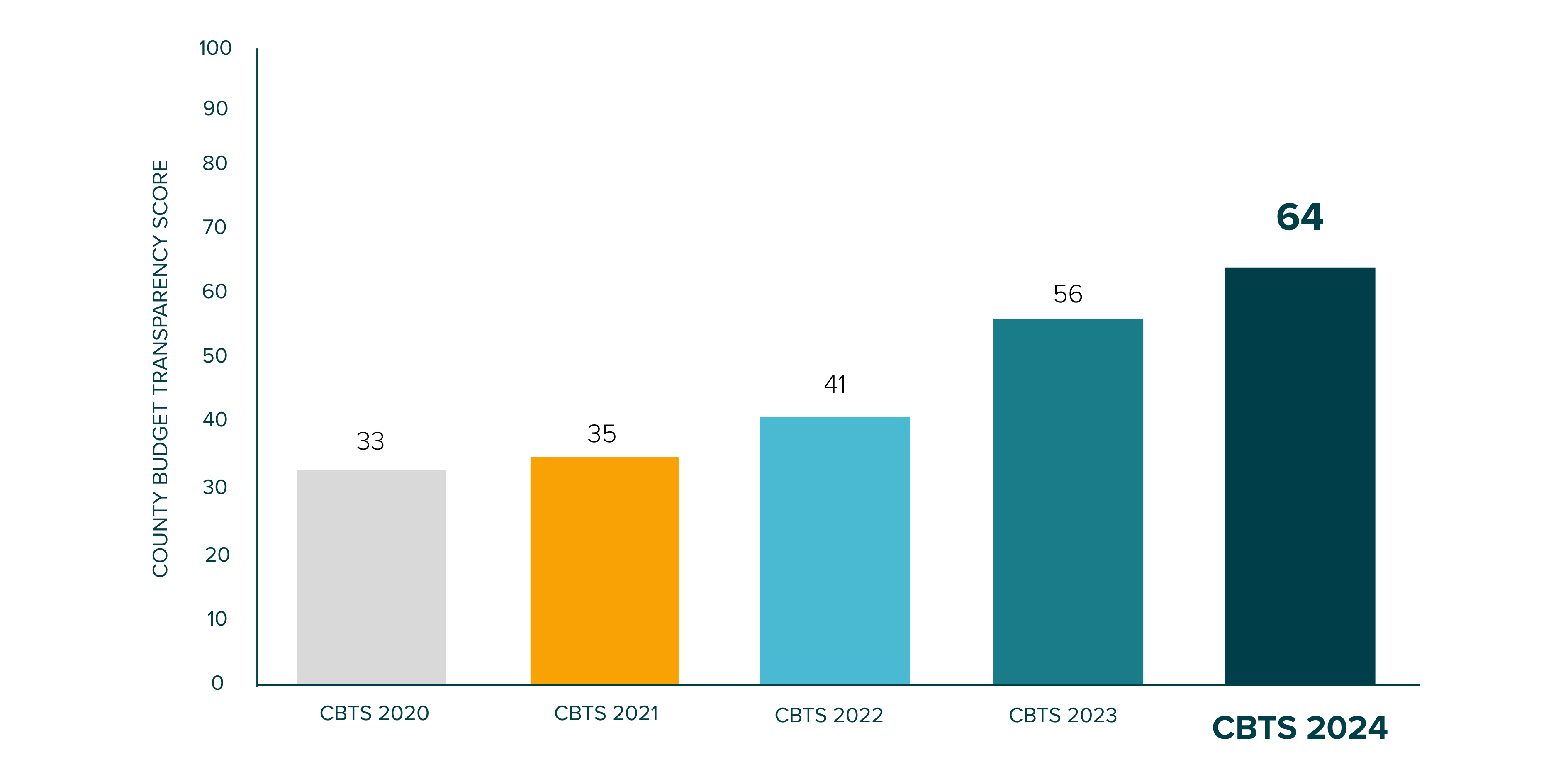
Counties published significantly more budget documents, by making publicly available 84 percent of those required in CBTS 2024.
Compared to CBTS 2023, 11 more counties published all ten of the required key budget documents in CBTS 2024, with the County Fiscal Strategy Paper being the most published budget document.
Despite greater availability of budget documents, counties still do not provide 39 percent of the information that is required by law.
Citizen budgets, which are meant to provide a simplified presentation of budget information, registered the greatest decline in information, falling from 48 to 38 out of 100 points on comprehensiveness in CBTS 2024.
Reporting on public participation remains limited. In the latest 2024 report, counties gave an average of just 12 out of 100 points in the FY 2023/24 on public participation.
Despite this, good practices exist across the country on how to capture feedback. on public participation with details on the priorities submitted from the public, who was involved, and at what level (sub-county, ward, or village) it was conducted.
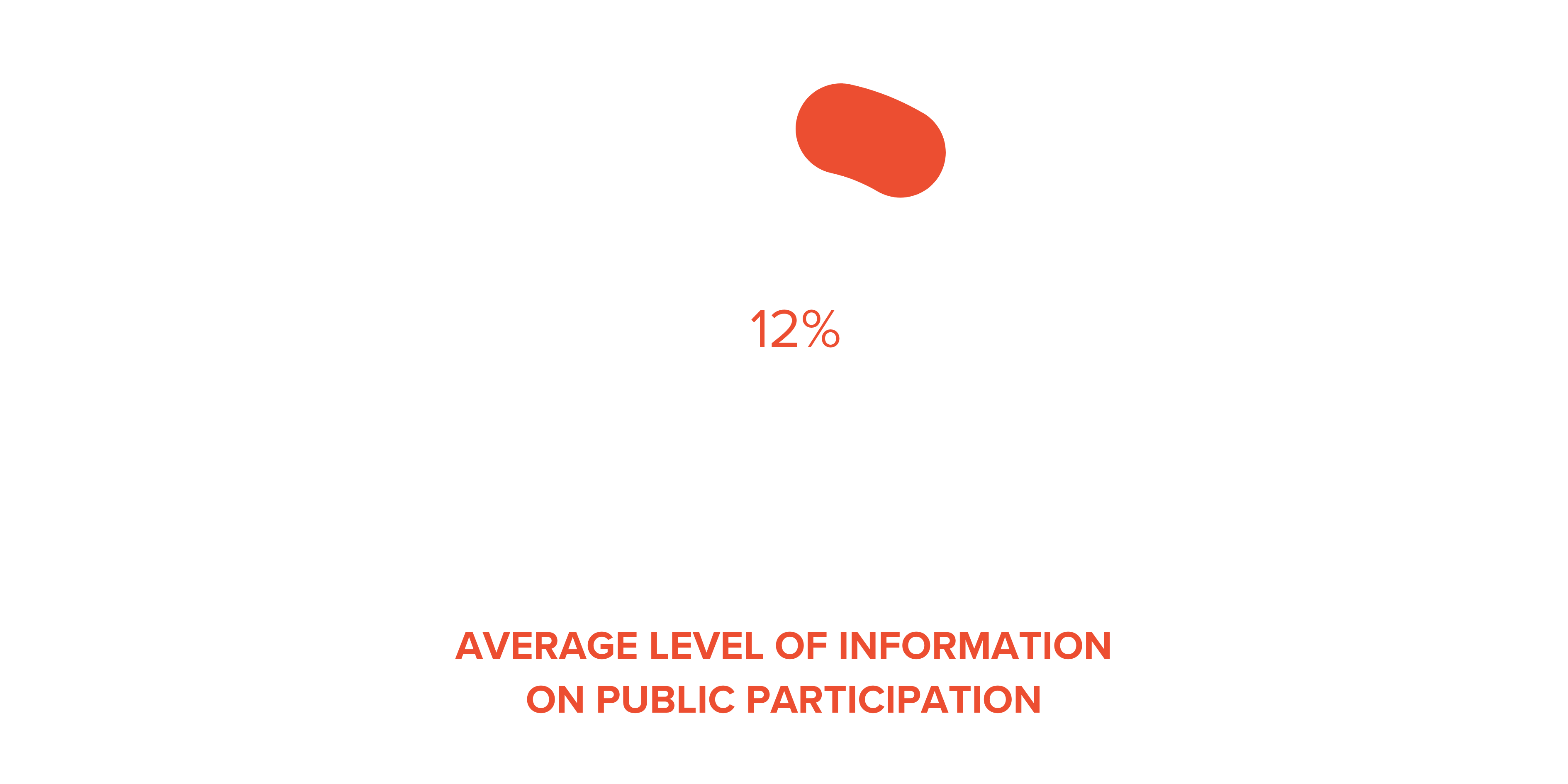
Understanding the Motivations for County Budget Transparency
Globally, few studies have explored what motivates or hinders sub-national governments from being fiscally transparent. In response, Bajeti Hub conducted an in-depth qualitative study on how Kenyan sub-national units share budget information with the public.
The research highlights the norms, experiences, and practices influencing fiscal transparency at this level, offering evidence to support fiscal reforms and advocacy by local civic groups. Its findings also provide valuable policy insights for other countries with similar decentralised financial systems.

Bajeti Hub Partners


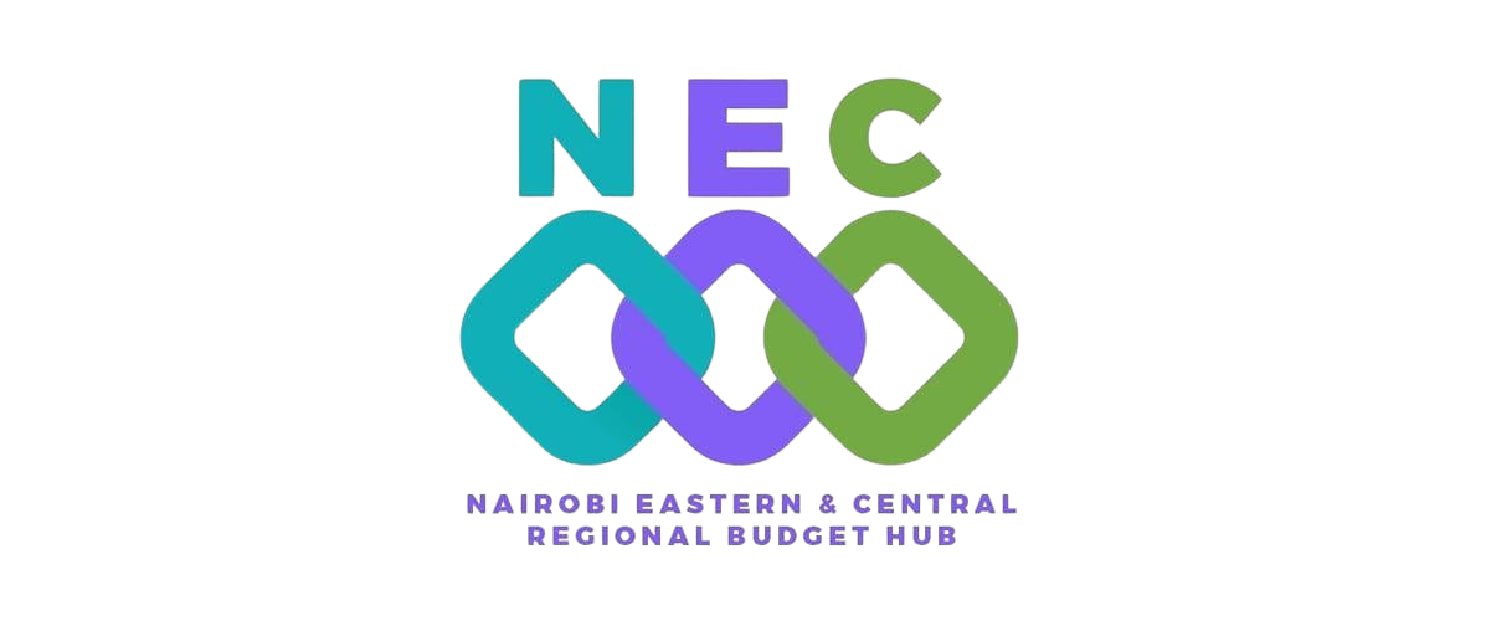
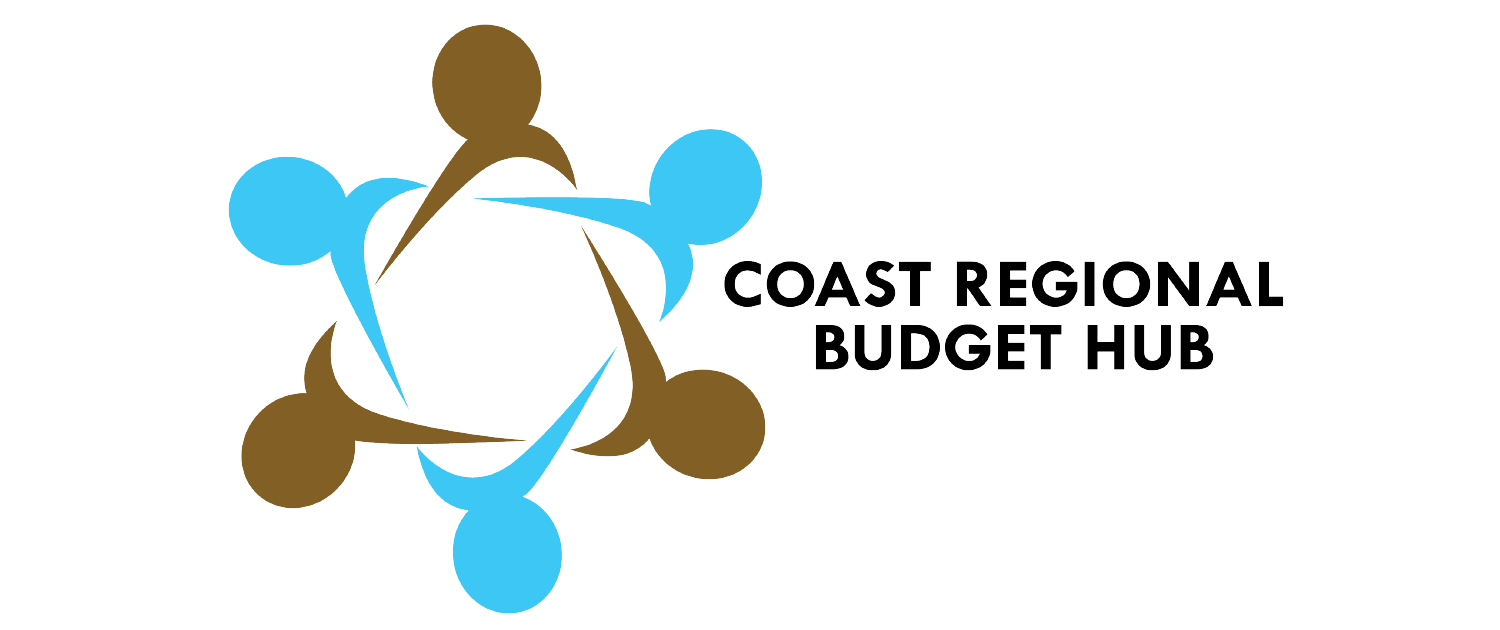


















Get Involved
Find out more about Bajeti Hub.
